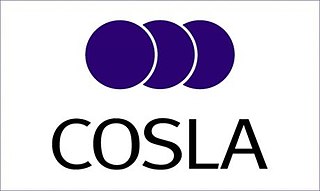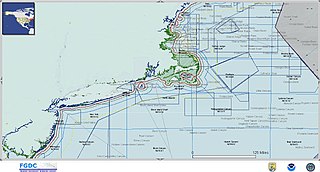Related Research Articles

Natural capital is the world's stock of natural resources, which includes geology, soils, air, water and all living organisms. Some natural capital assets provide people with free goods and services, often called ecosystem services. All of these underpin our economy and society, and thus make human life possible.
Quality of life (QOL) is defined by the World Health Organization as "an individual's perception of their position in life in the context of the culture and value systems in which they live and in relation to their goals, expectations, standards and concerns".
Governance is the process of making and enforcing decisions within an organization or society. It is the process of interactions through the laws, social norms, power or language as structured in communication of an organized society over a social system. It is done by the government of a state, by a market, or by a network. It is the process of choosing the right course among the actors involved in a collective problem that leads to the creation, reinforcement, or reproduction of acceptable conduct and social order". In lay terms, it could be described as the processes that exist in and between formal institutions.

The Canadian Index of Wellbeing (CIW) is a composite index, composed of eight interconnected domains that measures stability and change in the wellbeing of Canadians over time. The CIW describes wellbeing as, "The presence of the highest possible quality of life in its full breadth of expression, focused on but not necessarily exclusive to: good living, standards, robust health, a sustainable environment, vital communities, an educated populace, balanced time use, high levels of democratic participation, and access to and participation in leisure and culture". The CIW acts as a companion measure of societal progress to the Gross Domestic Product (GDP), which is based solely upon economic productivity.

Primary health care (PHC) is "essential health care" that is based on scientifically sound and socially acceptable methods and technology. This makes universal health care accessible to all individuals and families in a community. PHC initiatives allow for the full participation of community members in implementation and decision making. Services are provided at a cost that the community and the country can afford at every stage of their development in the spirit of self-reliance and self-determination. In other words, PHC is an approach to health beyond the traditional health care system that focuses on health equity-producing social policy. PHC includes all areas that play a role in health, such as access to health services, environment and lifestyle. Thus, primary healthcare and public health measures, taken together, may be considered as the cornerstones of universal health systems. The World Health Organization, or WHO, elaborates on the goals of PHC as defined by three major categories, "empowering people and communities, multisectoral policy and action; and primary care and essential public health functions as the core of integrated health services[1]." Based on these definitions, PHC cannot only help an individual after being diagnosed with a disease or disorder, but can actively contribute to preventing such issues by understanding the individual as a whole.
Health promotion is, as stated in the 1986 World Health Organization (WHO) Ottawa Charter for Health Promotion, the "process of enabling people to increase control over, and to improve their health."

The Convention of Scottish Local Authorities (COSLA) is the national association of Scottish councils and acts as an employers' association for its 32 member authorities.

Royal Society for Public Health (RSPH) is an independent, multi-disciplinary charity concerned with the improvement of the public's health.
In the higher education setting, the process of health promotion is applied within a post-secondary academic environments to increase health and wellbeing. The process needs professionals to engage in all five WHO Ottawa Charter Health Promotion Actions and particularly reorient all the sectors of a college campus towards evidence-based prevention, utilizing a public health/population health /community health model. Health promotion requires a coordinated effort in all five Actions:
- Building healthy public policy
- Creating supportive environments
- Strengthening community action
- Developing personal skills
- Re-orienting all service sectors toward prevention of illness and promotion of health

Marine spatial planning (MSP) is a process that brings together multiple users of the ocean – including energy, industry, government, conservation and recreation – to make informed and coordinated decisions about how to use marine resources sustainably. MSP generally uses maps to create a more comprehensive picture of a marine area – identifying where and how an ocean area is being used and what natural resources and habitat exist. It is similar to land-use planning, but for marine waters.

Sustainability accounting was originated about 20 years ago and is considered a subcategory of financial accounting that focuses on the disclosure of non-financial information about a firm's performance to external stakeholders, such as capital holders, creditors, and other authorities. Sustainability accounting represents the activities that have a direct impact on society, environment, and economic performance of an organisation. Sustainability accounting in managerial accounting contrasts with financial accounting in that managerial accounting is used for internal decision making and the creation of new policies that will have an effect on the organisation's performance at economic, ecological, and social level. Sustainability accounting is often used to generate value creation within an organisation.

The Carnegie United Kingdom Trust is an independent, endowed charitable trust based in Scotland that operates throughout Great Britain and Ireland. Originally established with an endowment from Andrew Carnegie in his birthplace of Dunfermline, it is incorporated by a royal charter and shares purpose-built premises with the Carnegie Trust for the Universities of Scotland, the Carnegie Dunfermline Trust, and the Carnegie Hero Fund Trust.

The Association of Mental Health Providers (AMHP), known until May 2017 as Mental Health Providers Forum (MHPF), is a registered charity based in London and the representative body for voluntary and community sector mental health organisations in England and Wales, working nationally and regionally to influence practice and policy. It aims to improve the range and quality of mental health services by increasing the involvement of the voluntary sector in delivering them, working in partnership with the wider sector and government agencies. Specific projects include the promotion of innovation in the sector, evidencing best practice to achieve the best outcomes for individuals and supporting recovery.

The Office for Budget Responsibility (OBR) is a non-departmental public body funded by the UK Treasury, that the UK government established to provide independent economic forecasts and independent analysis of the public finances. It was formally created in May 2010 following the general election and was placed on a statutory footing by the Budget Responsibility and National Audit Act 2011. It is one of a growing number of official independent fiscal watchdogs around the world.

The World Happiness Report is a publication that contains articles and rankings of national happiness, based on respondent ratings of their own lives, which the report also correlates with various life factors. As of March 2023, Finland has been ranked the happiest country in the world six times in a row.
Med Jones is an American economist. He is the president of International Institute of Management, a U.S. based research organization. His work at the institute focuses on economic, investment, and business strategies.
Gross National Well-being/Wellness (GNW) or Happiness (GNH) a socioeconomic development and measurement framework. The GNW/GNH Index consists of seven dimensions: economic, environmental, physical, mental, work, social, and political. Most wellness areas include both subjective results and objective data.
The World Happiness Council is a think tank of politicians and researchers based in the United Arab Emirates, intended to promote happiness and subjective well-being through the identification of public policy for policymakers worldwide and the standardization of happiness as a measure to guide governments.
At around £290 billion every year, public sector procurement accounts for around a third of all public expenditure in the UK. EU-based laws continue to apply to government procurement: procurement is governed by the Public Contracts Regulations 2015, Part 3 of the Small Business, Enterprise and Employment Act 2015, and the Public Contracts (Scotland) Regulations of 2015 and 2016. These regulations implement EU law, which applied in the UK prior to Brexit, and also contain rules known as the "Lord Young Rules" promoting access for small and medium enterprise (SMEs) to public sector contracts, based on Lord Young's Review Growing Your Business, published in 2013.
References
- ↑ McCartney, Gerry; Hensher, Martin; Trebeck, Katherine (2023-07-05). "How to measure progress towards a wellbeing economy: distinguishing genuine advances from 'window dressing'". Public Health Research & Practice. 33 (2). doi: 10.17061/phrp3322309 .
- 1 2 Nozal, Ana Llena; Martin, Neil; Martin, Fabrice. The Economy of Well-being: Creating Opportunities for People's Well-being and Economic Growth (Report). OECD.
- ↑ "Building a New Scotland: A stronger economy with independence - summary". www.gov.scot. Scottish Government. Retrieved 2023-10-07.
- ↑ "Wellbeing of Wales". Government of Wales. September 28, 2023.
- ↑ "Wellbeing Economy Governments (WEGO)". Wellbeing Economy Alliance. Retrieved 2023-10-07.
- ↑ The Geneva Charter for Well-being (Report). World Health Organisation.
- ↑ Achieving well-being: a global framework for integrating well-being into public health utilizing a health promotion approach (Report). World Health Organisation. 30 May 2023.